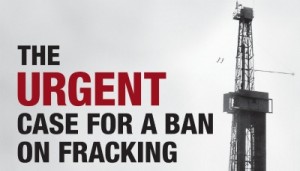Trade Unions and Civil Society Welcome the Introduction of the Human Right to Water into the Constitution of Slovenia
 Brussels, 18 November 2016 – Last night the National Assembly of Slovenia passed an amendment to its Constitution to include a new article that recognizes the Human Right to Water. The amendment affirms water should be treated as a public good managed by the state, not as a commodity, and that drinking water must be supplied by the public sector in a non-for-profit basis. It is a great success for Slovenian activists and people.
Brussels, 18 November 2016 – Last night the National Assembly of Slovenia passed an amendment to its Constitution to include a new article that recognizes the Human Right to Water. The amendment affirms water should be treated as a public good managed by the state, not as a commodity, and that drinking water must be supplied by the public sector in a non-for-profit basis. It is a great success for Slovenian activists and people.
“Citizens from across the EU and Europe have successfully mobilized to have the right to water and sanitation recognized as a human right – as decided by the United Nations – and have this put into EU law. The European Commission continues to ignore nearly two million voices of the first ever successful European Citizens Initiative. Commissioner Vella should listen to citizens and follow the Slovenian example as soon as possible,” said Jan Willem Goudriaan, EPSU General Secretary.
Water is a controversial topic in Slovenia, as foreign companies from the food and beverage industry are buying rights to a large amount of local water resources. The Slovenian government has raised concerns about the impacts of free trade agreements like CETA (between Canada and the European Union) in its capacity to control and regulate these resources (1).
“Trade agreements and investor-state dispute settlement mechanisms can limit the ability of states to take back public control over water resources when foreign investors are involved, as it is the case in Slovenia. To guarantee the right to water and the control over this key resource, the European and the Slovenian Parliaments should reject CETA when it comes to a vote in the coming months,” said David Sánchez, Director of Food & Water Europe.
The amendment is the result of a citizens’ initiative that collected 51.000 signatures to propose a constitutional amendment (2).
‘We welcome the introduction of the human right to water in the Slovenian constitution, as the great result of a citizens’ initiative. Now civil society should be vigilant to guarantee a democratic and transparent management of the integrated water cycle founded in the participation of citizens and workers,” said Jutta Schütz, speakperson at the European Water Movement.
———————————————————————
Notes
- The Slovenian government raised concerns about the ambiguity of terms like “commercial use of a water source” in CETA, how the agreement applies to existing water rights and the future ability of national governments to put limits on concessions already granted without being subject to claim under ICS, among others.
- More information about this citizen’s initiative can be found at their website.
Contact:
Jutta Schütz, Speakperson, European Water Movement, +49 (0) 157 390 808 39 (mobile), [email protected]
David Sánchez, Director, Food & Water Europe, +32 (0) 2893 1045 (land), +32 (0) 485 842 604 (mobile), dsanchez(at)fweurope.org
Guillaume Durivaux, Policy officer, EPSU, +32 (0) 22501041, [email protected]



